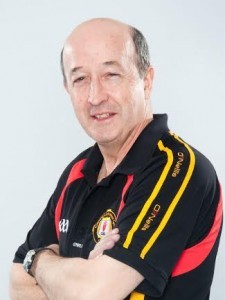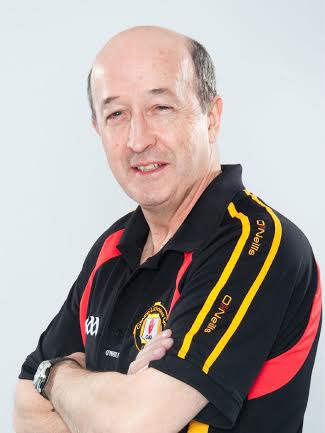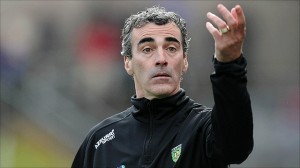 Coaching and Games Club Structures
Coaching and Games Club Structures
The club Coaching and Games Manager
The club coaching and games manager is the key club person to make sure that coaching and games are planned and implemented in your club.
It never ceases to amaze me how clubs go mad every year looking for a paid manager when they would be much better developing one of their own or spend this ‘short time goal’ money on a full time development officer ‘long term goal’ and give employment to one of their own.
The Club Coaching and Games Committee
Over the past few weeks we stressed the importance of having a strong coaching & games committee in place.
This can be from three to five club members, depending on the number of codes, including the chairman and one key personnel from each of the codes i.e. hurling, camogie, football etc.
This committee should be the place were all matters relating to coaching and games are planned and implemented through the various club team managers/coaches.
The Ideal Club:
Over the past two years clubs have been trying to implement the sample club coaching and games structure template shown in this paper over the past few weeks.
It was great to hear that some clubs are attempting this very difficult task of coordinating all the different age groups along the one pathway.
Not an easy task with so many barriers placed in the way of progress, from sadly in some cases, within the clubs themselves, were some club personnel have their own agendas and are not willing to change.
The ‘Never Never Never’ Clubs
This seemed to be a major problem in many clubs were two or three individuals dictate what is happening and no one else gets a say or are not assertive enough in having their point of view expressed.
It’s vital that all club members have a say in the direction they feel their club should be moving.
The club planning session explained a few weeks ago is the platform to sort these issues out and not in the local bar as is the case in some clubs.
Is mentoring the way forward?
Some coaches expressed the view that the way forward was through the mentoring method where outside expertise from the Ulster Council would be used to mentor club personnel.
I know Derry are going down this line where two or three key coaching personnel from each club will be mentored over a period of time e.g. four to five months with the mentor visiting the club on regular visits to up skill the coaches.
I feel this has many benefits over short term courses where a coach goes along to a course and is expected to learn everything in a few sessions.
This simply does not work.
Yes, you will pick up a few tips here and there but to gain the knowledge and competence to be able to coach takes many years and a lot of hard work.
I have been going to coaching courses from many sports for nearly forty years and still only know a fraction of what there is out there as it changes all the time as Jim McGuinness has shown with Donegal.
So, your club should be thinking of head hunting the best talent available and we could set up mentoring sessions for them over the coming months.
One idea would be setting up a number of sessions for these coaches over the next few months where these key personnel would attend once a week over a number of weeks to gain the necessary knowledge and then we would supply mentors to mentor these coaches in their own clubs.
Our new club coaching officer Dairmaid Marsden has already meet club coaching officers in the various counties, including Donegal.
For stage two, he hopes to meet these key club coaching personnel shortly to see where they hope to move to next. He hopes to set up a mentoring programme where these coaches will receive help in developing their club programmes.
The Follow on…
These mentees would then become the mentors in their own clubs and spread the gospel to the chosen few back in their own clubs.
Wasn’t this how the Great Man Himself spread the Gospel by mentoring His 12 Disciples and then they went and spread the gospel?
Topics could include some or all of the following…
• Communication – this lays at the heart of all coaching – if you can’t communicate you can’t coach.
• LTPDP – If you don’t understand the Long Term Player Development Pathway it’s impossible to get any continuity of progression for you players. The Ulster Council has developed an excellent wall planner which should be up on all club premises as coaches can see what they should be coaching and when.
• Your coaching philosophy – this dictates everything you do with regards to coaching and life.
• Coaching Methods and Styles.
• Periodisation – Planning your year/s.
• The ‘Tricks of the Trade’ how to organise your coaching – grids, dealing with discipline etc.
• Mental Training – Getting the Head Right – If the Head is not right forget about the rest.
• Technical Skills – How to build up and break down skills we call this ‘Spot & Fix,’ i.e. having the coach’s eye of being able to spot weaknesses and know how to fix them.
• Tactical Coaching – how to coach principals of play and team play.
• Physical Training – training the energy systems.
• Training for muscular fitness.
• Fuelling your players.
• Managing your team – handling relationships.
• Match Analysis –Playing facts and rules.
• Managing risk.
• Refereeing – developing your own referees.
• Lifestyle Issues – drugs, mental problems, anti-social behaviour etc.
Tags:







